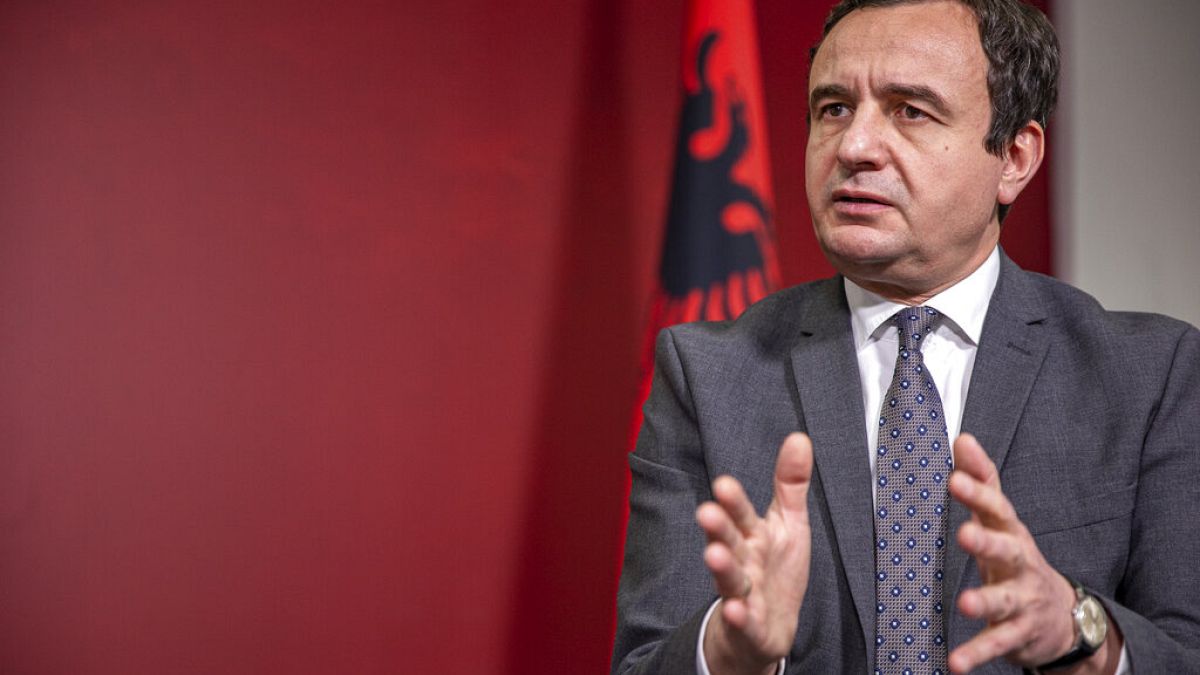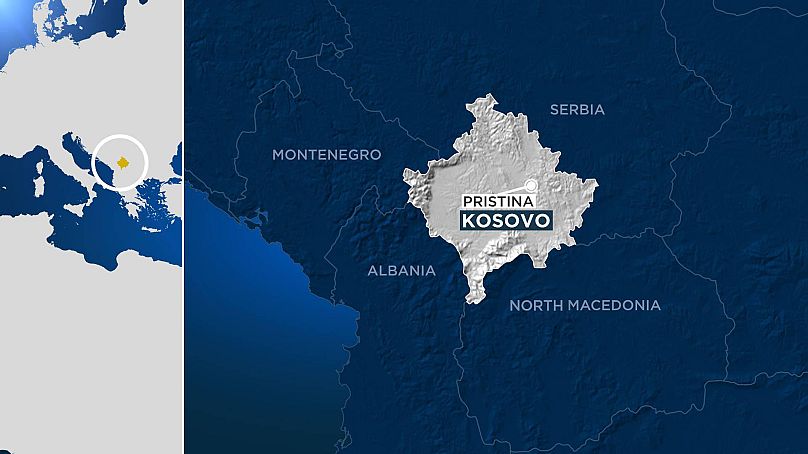Serbia has not reacted well to an interview Kosovo election winner Albin Kurti gave to Euronews.
The comments of Kosovo election winner Albin Kurti to Euronews appear to have done little to improve relations between Belgrade and Pristina.
Kurti's Vetëvendosje party won its largest share of the vote in elections at the weekend, paving the way for him to be prime minister.
"I'm ready to engage in a dialogue [with Serbia] where people will be the beneficiaries," Kurti told Euronews on Tuesday.
"But I think it is not acceptable to anyone in Kosovo - of course, including me - to engage in a dialogue where we are supposed to compensate the state of Serbia for the loss of this state during times of Milosevic.
"Serbia committed genocide in Kosovo," Kurti said,
Serbia's deputy prime minister, Zorana Mihajlovic, reacting to Kurti's interview on Euronews.com, said: "Serbia has not given in to threats and blackmail before, and Kurti is certainly not someone who should teach Serbia lessons, especially if we remember how much effort Serbia has invested in maintaining dialogue in life, with all the irresponsibility shown by Pristina negotiators, constant care for the security of Serbs in Kosovo and Metohija, as well as the usurpation and looting of energy resources and mineral resources of the Republic of Serbia."
Kosovo, a former province of Serbia, declared its independence in 2008. The move is still not recognised by Belgrade.
Pristina wants to join the European Union but a condition of starting negotiations has been for Serbia and Kosovo to resolve their long-running dispute. The two fought a bloody two-year conflict between 1998 and 1999.
Serbia's prime minister Ana Brnabic said Kurti's comments generally had suggested that dialogue with Belgrade was not a priority.
"This indicates the frivolity of the political elites in Pristina," she said. "I believe that dialogue is the only way to the normalisation of relations between the two sides, as well as for progress and stability in the region. After all, Pristina does not have a special perspective without that dialogue, because more than half of the countries in the world have not recognised the independence of Kosovo."
Experts are divided over whether Kurti's election win will affect the EU-facilitated talks between Kosovo and Serbia.
Dragisa Mijacic, a coordinator of the talks, told Euronews he thought they would continue.
"I don't believe that the personal animosities that exist now will have [an] effect on dialogue," he said. "I think it is more a matter of EU mediation and pressure from the international community on possible solutions.
"Kurti's previous government cooperated quite well with the political representatives of the Serbs in Kosovo and with the Serbian government, because we witnessed the meeting of the two health ministers in the fight against the pandemic.
"He [Kurti] will try to impose some of his solutions, some dynamics of his own. The question is how much of it will be allowed, I personally do not believe it is possible, but he will certainly try to impose some of his principles, from the principle of reciprocity to the principle of denying what has been adopted or some independent analysis of everything that is up to now adopted."
But political analyst Luka Bozovic told Euronews that the continuation of the talks will depend exclusively on pressure from the international community.
"The last statement was that we can't talk about any negotiations where Serbia gets something in return because Serbia is responsible for the crimes or as he claims for genocide," he said. "But on the other hand, such an approach is not something that can lead to a solution, so I think it will be very difficult to negotiate with it."
In his interview with Euronews, Kurti also said that he would vote in favour of uniting Albania and Kosovo if a referendum was organised.
Pavle Grbovic, the leader of the Serbian opposition group, Movement of Free Citizens, agrees that Kurti's comments have not helped.
"Statements about the possibility of Kosovo's unification with Albania are a destructive factor at the moment and they could not contribute to [the] improving of those relations and it seems to me that as irrational as it sounds, such statements and such an approach even suits Serbian President Aleksandar Vucic who can continue this black hole in this dialogue, which has not existed for a long time and it is possible that it will not exist in the future.
"Vucic has so far led these talks solely on the grounds that he gets something out of it. Serbia made concessions so that the government would get either international support or ignore some other things they did and did nothing to get something in return for the Serbs in Kosovo, and with such [a] policy they had an ideal interlocutor in the previous Kosovo authorities. I don't think the new government headed by Kurti will be a good partner for that kind of policy."
Meanwhile, Jelena Milic, director of the Center for Euro-Atlantic Studies, said Kurti's mention of genocide will not help Belgrade-Pristina dialogue.
"That kind of reworking of political history that Kurti is doing is unacceptable. It is a systemic disinformation campaign that he spreads and history revisionism absolutely does not instill confidence in me and does not tell me about any readiness to normalise relations."

